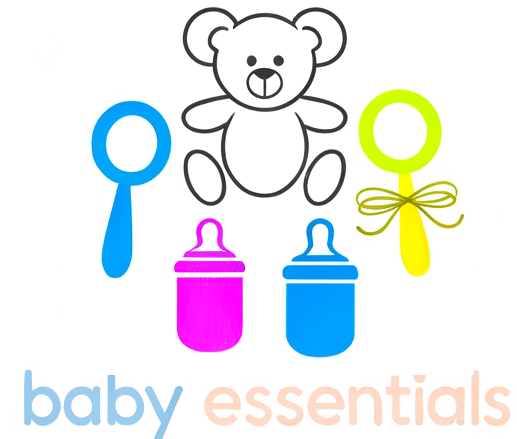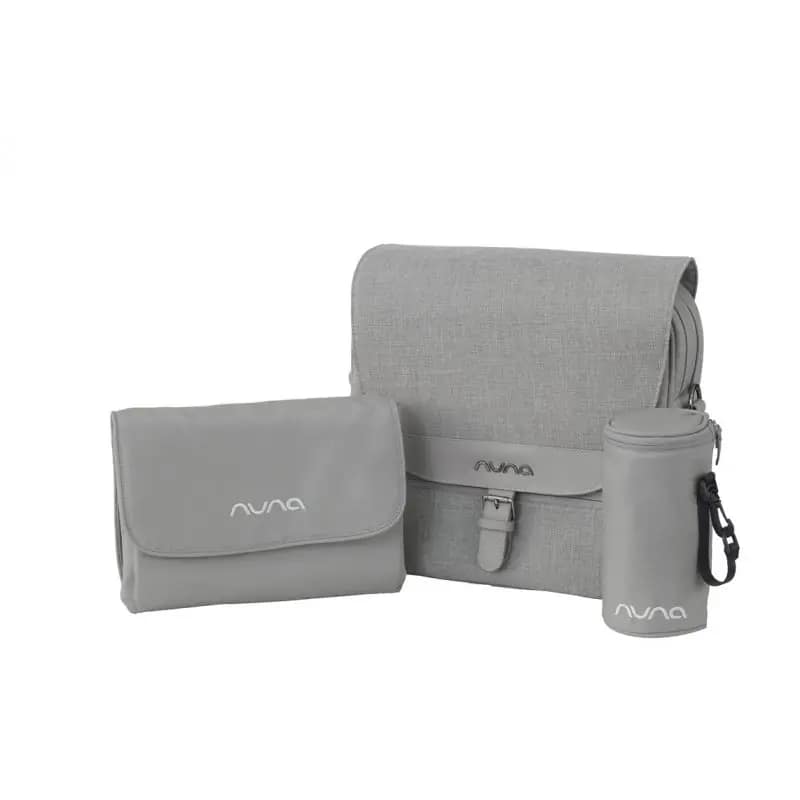Every parent knows that leaving the house with a baby means being prepared for anything. Whether you’re heading out for a quick walk, a doctor’s appointment, or a day-long adventure, a well-stocked changing bag is your best ally. This comprehensive guide, based on trusted medical and parenting sources, will help you pack with confidence, support your baby’s development on the go, and handle every outing with ease and joy.
Changing Bag Essentials: Why a Changing Bag Matters
A changing bag isn’t just a place to stash nappies, it’s your mobile command centre. It keeps you ready for nappy changes, feeding, comfort, and play, all while supporting your baby’s growth and keeping you calm in unexpected situations. The right changing bag setup can also help you respond to your baby’s developmental needs, from soothing a fussy newborn to engaging a curious crawler.
Changing Bag Essentials: The Complete Checklist
- Nappies: Pack one nappy for every 2-3 hours you’ll be out, plus an extra or two for emergencies.
- Wipes: Travel-size packs save space and are perfect for quick cleanups.
- Changing Pad: Many bags come with one, but a portable pad or disposable pads are handy for changing anywhere.
- Nappy Rash Cream: Use a travel-size tube to prevent and treat irritation.
- Hand Sanitiser: Essential for cleaning your hands before and after changes.
- Nappy Disposal Bags or Wet Bag: For dirty nappies, wipes, or soiled clothes.
- Change of Clothes: Always pack at least one full change, including socks, for accidents or spills.
- Muslins: For feeding, spit-up, or quick cleanups.
- Bottles and Feeding Supplies: Bring pre-measured formula, breast milk, or snacks as appropriate for your baby’s age.
- Dummy / Pacifier (if used): Store in a resealable bag to keep it clean.
- Snacks and Water: For older babies and toddlers, pack age-appropriate snacks and a sippy cup or bottle.
- Nursing Cover and Pads: For breastfeeding moms, a cover and extra pads can be helpful.
- Blanket: A lightweight blanket can double as a play mat, nursing cover, or stroller shade.
- First Aid Kit: Include bandages, ointment, and a digital thermometer for peace of mind.
- Small Toys or Books: To entertain your baby and support development on the go.
- Wallet, Keys, and Phone: Use a dedicated pocket for your essentials so you’re not digging through diapers to find them.
- Other Handy Extras: Ziplock bags, a portable phone charger, hand cream, and a baby carrier for longer outings.
Changing Bag Essentials: Packing Tips for Stress-Free Outings
- Organise by Category: Group similar items together and use pockets or small bags for easy access.
- Portion Bottles: Keep formula powder and water separate until needed; use a cooler for breast milk.
- Contain Leaks: Use resealable bags for anything that might spill or leak.
- Restock After Each Outing: Refill nappies, wipes, and other essentials as soon as you get home.
- Customise for Your Baby’s Age: As your baby grows, update your bag with age-appropriate snacks, toys, and supplies.
Supporting Your Baby’s Development on the Go
A well-packed changing bag does more than keep your baby clean; it supports their growth and learning wherever you are. Here’s how to use your outings as opportunities to nurture your baby’s development:
Physical Development
- Bring lightweight toys for grasping, shaking, or chewing to encourage fine motor skills.
- Use tummy time mats or blankets for safe play in parks or at friends’ homes.
- Let your baby practice sitting, crawling, or standing in safe, clean spaces.
Cognitive Development
- Pack board books, rattles, or stacking cups to stimulate curiosity and problem-solving.
- Play peekaboo or naming games with familiar objects from your bag.
Language and Communication
- Talk to your baby about what you see and do during your outing.
- Sing songs or read aloud while waiting in line or at appointments.
Social and Emotional Development
- Respond to your baby’s cues for comfort, play, or rest.
- Bring a favourite comfort item, like a soft toy or blanket, to help your baby feel secure in new places.
Month-by-Month: Packing Essentials for Each Stage
0–3 Months
- Nappies, wipes, and rash cream for frequent changes.
- Extra clothes for spit-up or diaper leaks.
- A swaddle or receiving blanket for warmth and comfort.
- Burp cloths and muslins for feeding and cleanups.
- Dummy / Pacifier (if used), nursing cover, and breast pads.
- A small toy or black-and-white book for visual stimulation.
4–6 Months
- All newborn essentials, plus:
- Teething toy or ring for sore gums.
- Lightweight toys for grasping and shaking.
- Portable changing pad for on-the-go nappy changes.
- First aid kit for minor bumps and scrapes.
7–12 Months
- All previous essentials, plus:
- Snacks and a sippy cup or bottle for water.
- Finger foods for self-feeding practice.
- Board books and interactive toys for cognitive and language development.
- Change of clothes for messy eaters and new crawlers.
- Wet bag for soiled clothes or bibs.
Developmental Milestones: What to Expect and How to Support Them
Your baby’s first year is full of exciting changes. Here’s a brief overview of typical milestones and how your changing bag can help you support them on the go:
| Age | Physical | Cognitive | Language | Social/Emotional |
|---|---|---|---|---|
| 0–3 mo | Moves arms/legs, lifts head, grasps finger | Focuses on faces, tracks movement | Cooing, cries, responds to voices | Bonding, enjoys cuddling |
| 4–6 mo | Rolls, sits with support, reaches for toys | Explores hands, starts cause and effect | Babbles, laughs, copies sounds | Smiles, enjoys play |
| 7–9 mo | Sits unaided, starts crawling | Finds hidden objects, explores | Babbles chains, responds to name | Stranger anxiety, enjoys social games |
| 10–12 mo | Pulls to stand, cruises, may walk | Understands cause/effect, imitates | First words, follows instructions | Shows affection, separation anxiety |
Practical Tips for Supporting Development During Outings
- Let your baby explore safe environments, parks, libraries, or playgroups.
- Encourage reaching, grasping, and crawling by placing toys just out of reach.
- Talk about everything you see and do; name objects and describe actions.
- Sing songs, play peekaboo, and read books aloud.
- Offer comfort and reassurance in new or busy places.
Common Concerns and Reassurance
It’s normal to worry about forgetting something or whether your baby is meeting milestones. Remember:
- Every baby develops at their own pace, milestones are guidelines, not deadlines.
- Missing one milestone is rarely a cause for concern; look for steady progress overall.
- If your baby seems delayed in several areas or loses skills, talk to your health visitor or paediatrician.
- It’s okay if your nappy bag changes as your baby grows and adapts to your family’s needs.
FAQs: Changing Bag Essentials
How many nappies should I pack?
One for every 2-3 hours you’ll be out, plus an extra or two for emergencies.
What’s the best way to organise my nappy changing bag?
Group items by category, use pockets and small bags, and restock after each outing.
Do I need to bring toys and books?
Yes! Small toys and books keep your baby entertained and support development on the go.
What if I forget something?
Most places have shops or other parents willing to help. With experience, you’ll find your own must-haves.
Final Thoughts: Outings as Opportunities
Every outing is a chance to connect with your baby, support their development, and make memories together. With a thoughtfully packed nappy changing bag, you’ll be ready for anything, from nappy changes to first steps, from hungry cries to belly laughs. Trust yourself, adapt as you go, and enjoy the adventure of parenthood, one outing at a time.
Sources:
Healthline – Diaper Bag Essentials: What Do You Really Need?
Offers a medically reviewed checklist of diaper bag must-haves, including diapers, wipes, cream, hand sanitiser, changing pad, extra clothes, burp cloths, pacifiers, portable blanket, first aid kit, and tips for packing efficiently and safely.
NHS – Hospital Bag Checklist
Provides a practical list of items to pack for your baby when leaving home, including nappies, wipes, muslin squares, outfits, blanket, and car seat, with advice on preparation and adapting to your baby’s needs.
Taking Cara Babies – Diaper Bag Essentials
Shares a detailed diaper bag checklist, organisation tips, and expert advice on customising your bag for your family’s needs, including guidance on feeding, comfort, safety, and parent essentials.
BabyGaga – How To Pack The Perfect Diaper Bag
Explains how to organise your diaper bag for easy access, use pockets and dividers, keep wet/soiled items separate, and utilise insulated pockets for bottles and perishable items.
Gentle Nursery – The Ultimate Diaper Bag Checklist
Highlights the importance of age-appropriate feeding supplies, insulated bags for breast milk, snacks, and practical tips for keeping both baby and parent comfortable and prepared on outings.
Nationwide Children’s Hospital – Developmental Milestones: 0 to 6 Months
Offers guidance on supporting your baby’s development through play, interaction, and routine, with practical tips for encouraging motor, communication, and social skills during outings.
Child Mind Institute – Complete Guide to Developmental Milestones
Provides an overview of physical, cognitive, and social milestones, and advice on recognising typical progress and when to seek professional attention.
These sources are widely recognised by healthcare professionals and parenting experts for their reliability and practical advice.
Disclosure: As an Amazon Associate, I earn from qualifying purchases. This means that if you click on a link and make a purchase, I may receive a small commission at no additional cost to you.

